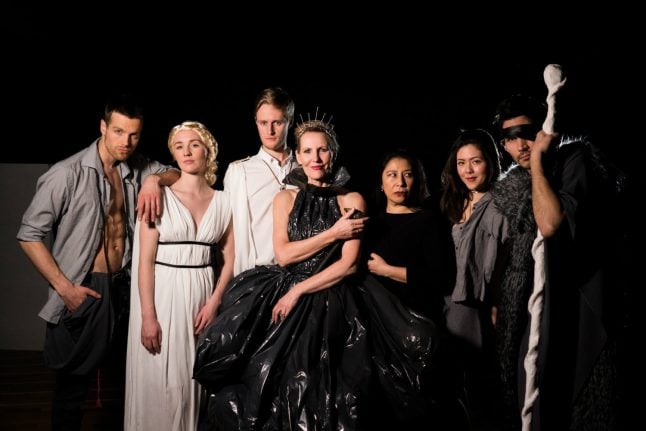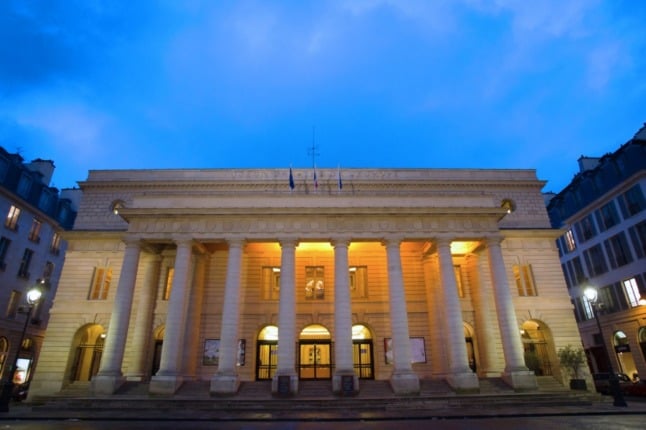A cold wind blows – sounds familiar? – across Ancient Greece. The king of Argos, hero of the Trojan war, is dead. The princess Elektra has sworn revenge on his killer, the queen…and her mother. Her opportunity arrives when her brother Orestes comes home to avenge their father.
In the absence of a new season of Game of Thrones this year, Copenhagen Business School's CBS Theatre is offering alternative intrigue and murder in an adaptation of Euripides’ ‘Elektra’.
Despite its ancient origins, some of Elektra’s themes remain ominously relevant today.
“It is about being so locked on achieving one thing that it ends up being your downfall. Klytemnestra isn't capable of fully taking responsibility for taking away Elektra's father from her and Elektra isn't capable of forgiving her mother,” says Kristine Helms, who plays Princess Elektra.
Somewhat ironically, Greece is absent from the very international cast of Elektra, which features performers from Norway, Germany, Slovenia, Guatemala, Sweden, Italy and Denmark.
Director and founder of CBS Theatre, Marley Hasselbach, is himself Dutch.
“I knew there was this gap at CBS. It was case competition after case competition – not a lot of artsy things. I did a lot of theatre in The Netherlands and transitioned into directing two years ago in Amsterdam. When I moved to Copenhagen, I wanted to continue working with performing arts, and so I started CBS Theatre,” Hasselbach says.
The CBS production follows in the footsteps of Boeing Boeing, which performed to sold-out audiences in March last year.
Norwegian Jakob Espen plays Orestes, brother to Elektra. Espen is a CBS student studying for an MSc in Business Administration and Innovation Healthcare – and rather new to treading the boards.
“I wanted to try something new and meet new people. It was mostly the social aspect, really. I was once in a school play, but that was a long time ago,” the Norwegian says.
Orestes is a rather intense role to play, with a high degree of physicality, which appeals to Espen.
“I really like the physical aspect of the role. I find that aspect much easier to be comfortable with,” he says.
The cast also features a couple of actors with more experience. Pejman Khorsand-Jamal, who plays the Ward, has trained in cities including New York, Berlin, and London, and appeared on several Copenhagen stages. So, what drew Pejman to join the CBS production?
“I have been interested in experimenting with Greek theatre for some time,” he says.
“There is a lot of dialogue in it, which makes it a very different acting experience, and that really appealed to me.”
The role of Klytemnestra, Elektra’s murderous mother, is played by Annethia Lilballe, who has appeared in numerous radio and TV shows in Denmark.
“For me, it means sharing my professional experience with people younger than me, which is satisfying and meaningful. We have a wonderful connection and we all do our best to create a great process and result. The level of commitment means a lot,” Lilballe says.
Two of the cast members, Helms and Victoria Elvirose Rishøj, a member of the chorus, have been so inspired by their positive experiences on the amateur stage in Copenhagen that they are now in the process of looking at acting school options.
So will our international forces align, or will the evil – perhaps in the form of lights, sound and costume changes – lead us to tragedy? Either way, you’re in for a treat.
Elektra opens on the Stage at Huset-KBH on March 21st and runs until March 25th.
Tickets are available now and can be purchased here.
By Malene Ford
READ ALSO: Why a Danish 'bloodbath' is coming back to Stockholm, almost 500 years later



 Please whitelist us to continue reading.
Please whitelist us to continue reading.